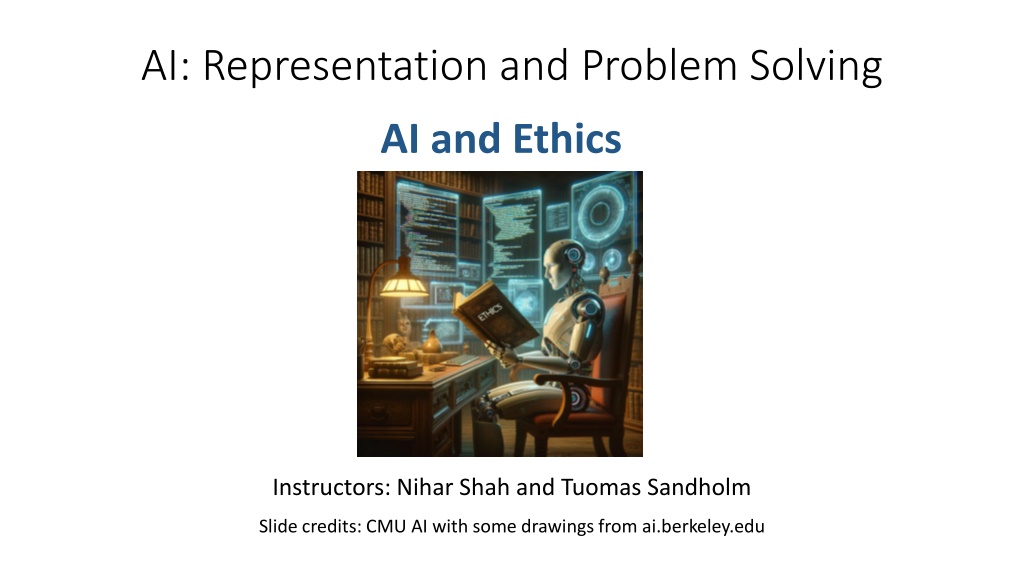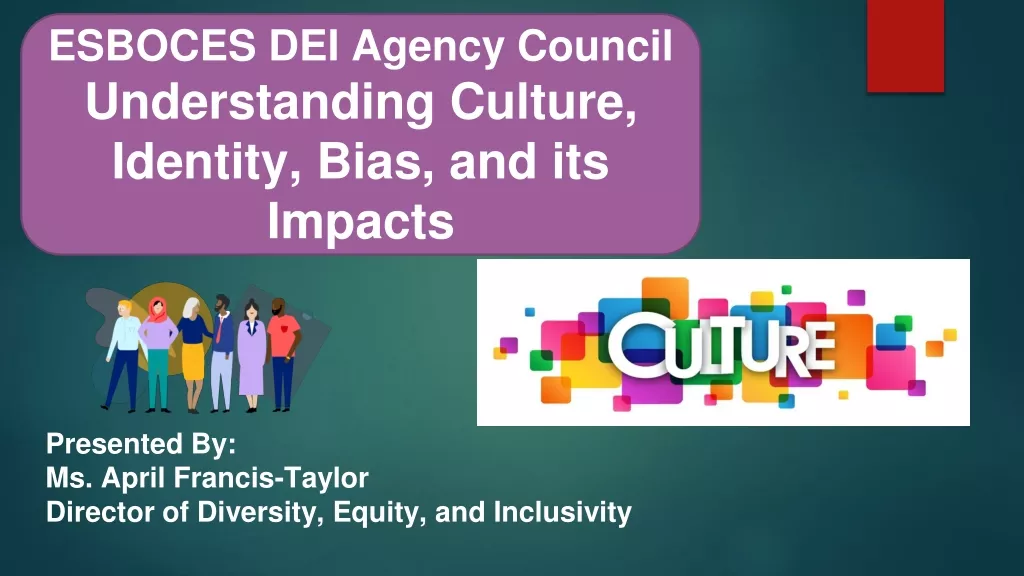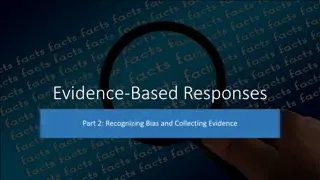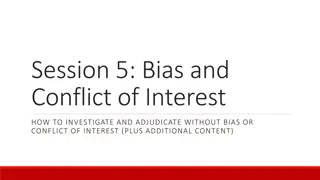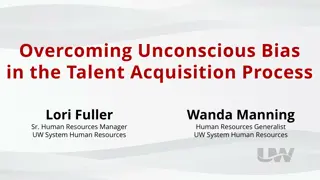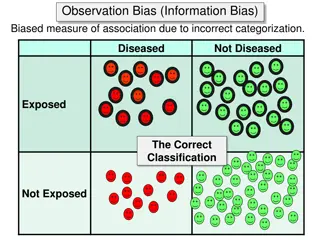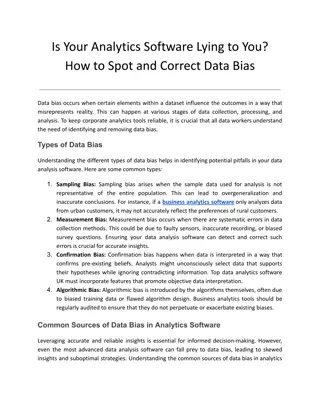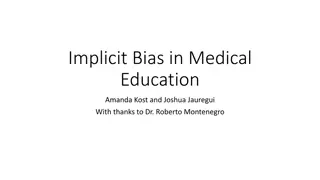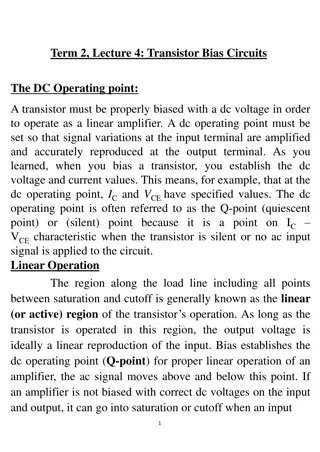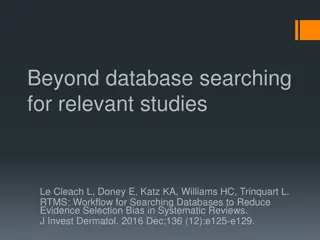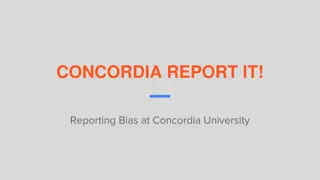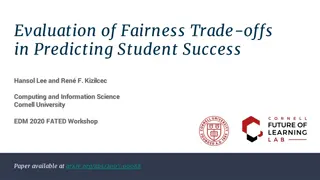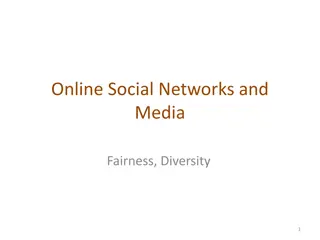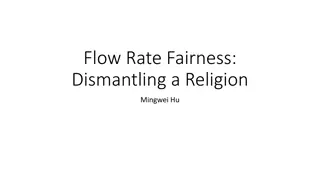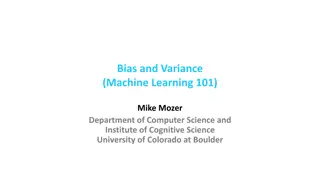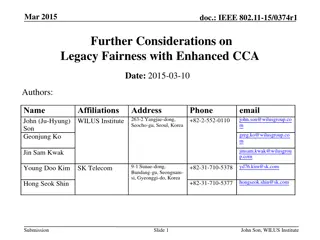Ethical Considerations in AI: Representation, Bias, and Fairness
Exploring the ethical dimensions of artificial intelligence (AI) reveals the unique position AI systems hold in behaving ethically. From causality to interpretability, bias, and privacy concerns, this discussion sheds light on the importance of ethical considerations in AI development and implementation.
Download Presentation

Please find below an Image/Link to download the presentation.
The content on the website is provided AS IS for your information and personal use only. It may not be sold, licensed, or shared on other websites without obtaining consent from the author. Download presentation by click this link. If you encounter any issues during the download, it is possible that the publisher has removed the file from their server.
E N D
Presentation Transcript
AI: Representation and Problem Solving AI and Ethics Instructors: Nihar Shah and Tuomas Sandholm Slide credits: CMU AI with some drawings from ai.berkeley.edu
AI is in a fairly unique position with respect to ethics Not only must AI developers behave ethically The AI systems, themselves, must behave ethically
Causality Classical: Correlation is not causation Prediction is not causation https://statisticseasily.com/correlation-vs-causality/
Any intervention changes the system As in our story Past data may not reflect the future
Explanability/interpretability What is the AI doing? How does it really work? Why is it giving the output it is giving? Are explanations faithful to the AI s actual working? Do explanations make humans complacent?
Bias/(Un)fairness https://www.reuters.com/article/idUSKCN1MK0AG/
One cause (although not the only one): Data used to create the AI was biased https://www.nber.org/system/files/working_papers/w9873/w9873.pdf AI mimics the same patterns
https://www.washingtonpost.com/techn ology/2019/12/19/federal-study- confirms-racial-bias-many-facial- recognition-systems-casts-doubt-their- expanding-use/
Privacy https://cybernews.com/security/chatgpt-samsung-leak-explained-lessons/
Privacy What are some tradeoffs we make when giving AI our private information? Do you have a limit for the type or amount of data you are willing to provide? How can we make the data usage of AI systems more explicit? Are there ways that we can still enjoy the benefits of AI systems without giving up our private information?
Right to be forgotten? LinkedIn or Facebook can delete a post Google can delete a search result But how to make the AI un-learn? https://en.wikipedia.org/wiki/Right_to_be_forgotten
Surveillance 16
Surveillance 17
Liability How do we determine what went wrong (or right) in deployed AI systems? Which techniques that we learned about have explainable results? Who is responsible for mistakes that AI systems make? What if someone or another AI misuses AI technology? Who is responsible? Think about: Air traffic control Self-driving cars Healthcare decision-making https://cms.law/en/gbr/publication/artificial-intelligence-who-is-liable-when-ai-fails-to-perform
Employment What types of jobs should AI do instead of people? What will people do if their jobs are taken? How can AI systems improve or change people s jobs even if it doesn t take the jobs? https://www.nytimes.com/2023/08/24/upshot/artificial-intelligence-jobs.html https://www.bloomberg.com/news/articles/2024-02-08/ai-is- driving-more-layoffs-than-companies-want-to-admit
Should we worry about future A.I.? Singularity Weak AI Strong AI Artificial General Intelligence (AGI) Recursive self- improvement Beyond human control Narrow AI Limited number of applications
AI Weapons/Safety https://www.youtube.com/watch?v=9CO6M2HsoIA
Value (Mis)alignment Are the AI s goals same as human goals/preferences? If we use, to achieve our purposes, a mechanical agency with whose operation we cannot interfere effectively we had better be quite sure that the purpose put into the machine is the purpose which we really desire. Norbert Weiner
https://www.ted.com/talks/stuart_russell_how_ai_might_make_us_better_peoplehttps://www.ted.com/talks/stuart_russell_how_ai_might_make_us_better_people
